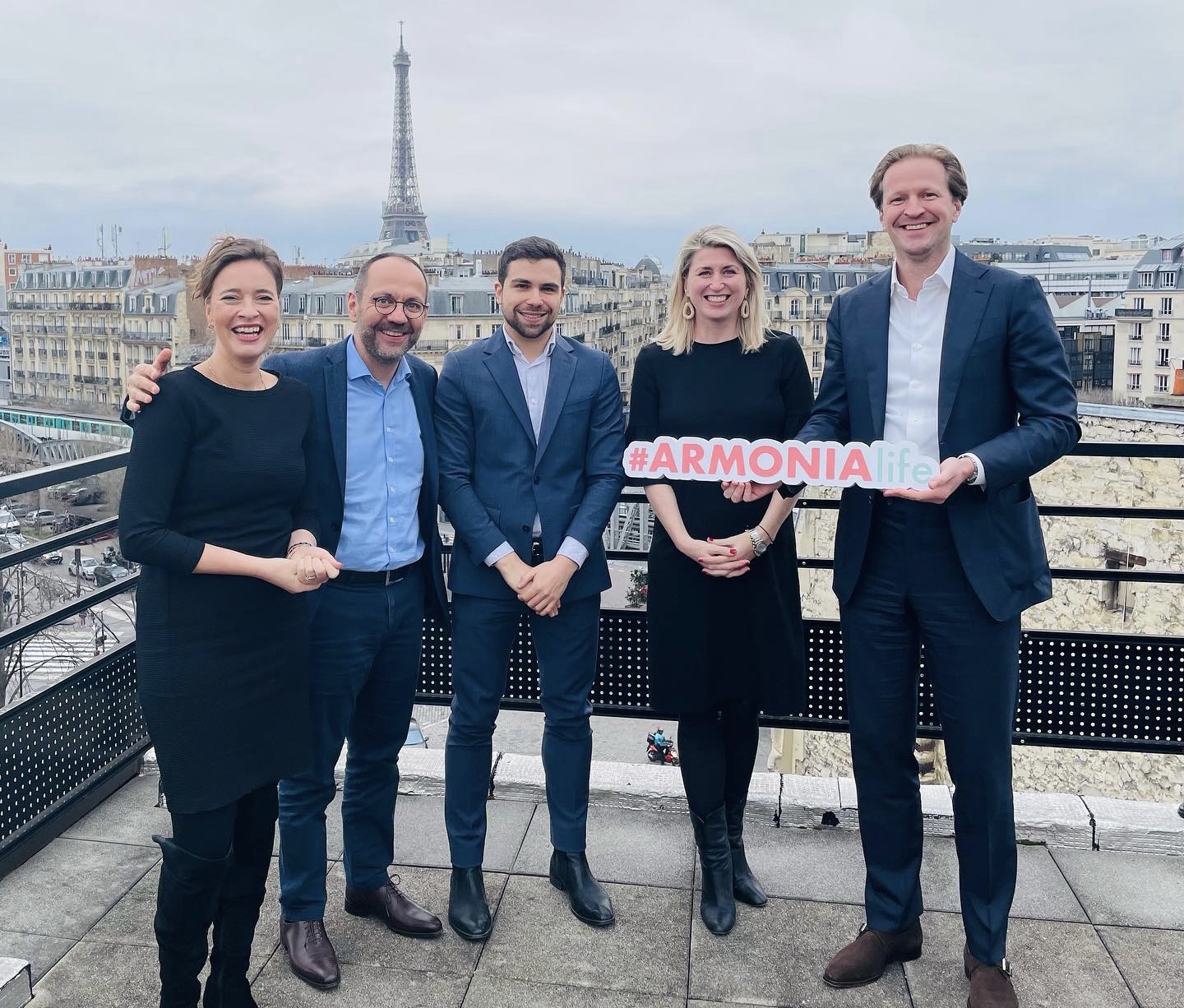At the end of 2021, Dutch bouwens& and the Belgian-Luxembourg branch of Armonia merged. Since then, bouwens& has been the Benelux brand of the Paris-based multinational. An excellent time to speak with Guillaume Amar (CEO of Armonia) and Michael Bouwens (Director in the Benelux). They discuss the family business, its strategy, and European developments.
Armonia is the new player in the Benelux. What should people know about you guys?
Guillaume: "In 1974, Patrick Thélot started hotel and reception services in Paris. Now we get to serve the hospitality and facility management market in Europe, North Africa and the Middle East. 16,000 employees, 4,500 customers and an annual turnover of some 275 million euros; Patrick has come a long way with his family business!"
Michael added: "Armonia is indeed a real family business. Patrick, as Chairman, is therefore still heavily involved in the company. His children work there and the corporate culture is family-like; people are attentive and caring towards each other and others."
By the end of 2021, Armonia's operations in Belgium and Luxembourg and bouwens& in the Netherlands will have merged. How did you get to know each other?
Guillaume: "Within Armonia, we always look for opportunities to keep developing ourselves and the Benelux market has huge potential. Together we are even stronger and we can grow further, innovate more, keep the best employees and attract new talent."
Michael: "The merger was a logical step. Two family businesses with similar DNA where customer satisfaction, distinctive personal service and the human touch are central. This partnership enables us both to perform even better in all those areas. And that is what we both want, constant improvement!"

How is Armonia coping with the current tight labour market?
Guillaume: "Unemployment in the Benelux is historically low and is also decreasing fastest in the hospitality, cleaning and security sectors, among others. It is precisely in these industries that facilities jobs are located. In England and France, too, the number of vacancies has never been higher."
"We are adapting our recruitment, staying focused on quality staff. For instance, we put in advertisements through TikTok and organise local walk-in days for candidates. Applications are answered within a day and suitable candidates can start work within a week. Previously, this often took a month. Employees with the right skills are given the opportunity to grow. We teach them the trade, but what matters most to us is motivation, enthusiasm and energy."
Michael: "Not only our own organisation is facing the current tightness in the labour market. Our clients face the same challenge. The workload among their employees is high, so employers are looking for new ways to unburden their employees. At our sister company in London, demand is growing for so-called 'concierge and lifestyle services' that make people's lives easier. Think dry cleaning, carwash, tickets, shopping and handyman. Soon we will also offer this service in Amsterdam and Brussels."
What consequences of the pandemic do you see?
Guillaume: "The pandemic has changed the playing field in several ways. Besides the labour market tightness, the phenomenon of working from home has landed in our consciousness for good. Pre-corona, working from home was already commonplace in England, but a lot less common in France, for example, and not at all in Spain. Meanwhile, in many European countries, we see that people are less likely to return to the office than expected. Working from home is no longer required by governments, but for now it remains the first choice of employees. Clients ask us to help think of solutions that make people return to the office. For instance, we organise events in offices for tenants and users, such as live matches and strawberries with cream during Wimbledon in Canary Wharf offices, unexpected fun promotions, and far-reaching facilitation. It simply has to become more attractive to come to the office than to stay at home. "
Michael: "Many companies are using less square footage for workstations and more for other functions such as meeting and relaxing. There was much speculation during the pandemic about divesting space, but as yet this is not happening. On the contrary, many of our clients are actually renting extra square metres, for example for meeting rooms, lounge areas, or sports and games. The office is definitely changing from a workspace to a meeting place."
What does this mean for your services to companies?
Michael: "The Hospitality Manager of bouwens& is closely involved in the further development of the service concept at the client.
This experienced specialist is the central point of contact within our services. Often the HM comes from the hotel industry and therefore the responsibility for the right range of services, the management of the team and the execution of the service lies with this expert. This way, we completely unburden guests and users during their visit to the office. Because only then will they return there gladly and of their own accord."
Guillaume: "Complete unburdening of clients is just as important. More and more companies in Europe choose integrated facility management (IFM) from Armonia. We are then responsible for a broad package of hospitality and facility services. From reception, security and cleaning to technical maintenance. Bouwens& is the logical party in the Benelux for this. As a hospitality specialist, they have been making hospitality a reality for a long time. So visitors and employees of our clients always experience the perfect guest journey, from arrival to departure